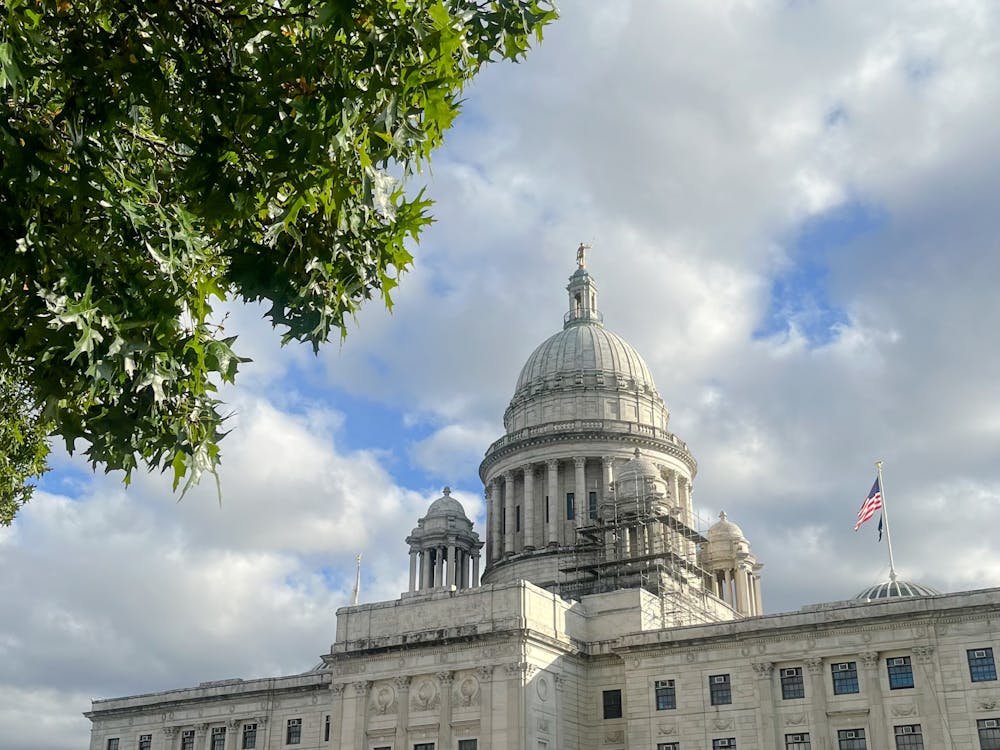When Rhode Island residents head to the polls today, they will be asked to vote on three statewide ballot measures requesting funding for environmental, recreational and educational projects. Among these measures is Question 1, which asks if the state may borrow $100 million in bonds to fund the second phase of renovations to the University of Rhode Island’s Narragansett Bay Campus, which houses the Graduate School of Oceanography.
Question 1 has received support from numerous state business and political leaders, as well as President Christina Paxson P’19, who penned an op-ed in the Boston Globe last week in which she highlighted the benefits that the renovated research facilities would bring to the state.
“These investments will prepare the bay campus to deepen its impact on the local, national and global ocean economy for decades to come and benefit all Rhode Islanders in the process,” Paxson wrote.
In addition to hosting the Graduate School of Oceanography, URI’s Narragansett Bay Campus is home to research facilities that are used by more than 20 institutions at URI, such as the College of Engineering, said Paula Bontempi, dean of the Graduate School of Oceanography.
Much of the existing infrastructure at the bay campus is outdated and in need of replacement, Bontempi said. The Horn Laboratory, which was built more than 50 years ago as a bomb shelter, is “literally crumbling,” she added, with leaks in the roof draining into conference rooms and contaminating laboratories.
The poor state of the Horn Lab is “really an embarrassment” for the GSO, Bontempi said. “We have the talent to do the research we want to undertake, we just are limited by our facilities.”
If approved by voters, the second phase of renovations, which follows an initial set of changes which began in 2018, would replace the Horn Lab with a new “Ocean Frontiers Building,” which would include “adaptable laboratory space” as well as new power and HVAC systems, according to URI’s master plan. The second phase also includes the construction of a new Ocean Engineering Complex, renovations to the Coastal Institute, additions to the Marine Geological Samples Laboratory and the construction of a gate house at the entrance of the campus.
Rhode Island voters approved a ballot measure to spend $45 million on the project for the first phase of renovations four years ago. The first phase is currently underway, Bontempi said, and includes a new pier for research vessels, a new Marine Operations Facility and an Ocean Robotics Laboratory.
These new research facilities will lead to an expansion of URI’s research portfolio and profile, Paxson said in an interview with The Herald. This will result in “a better research ecosystem in the state of Rhode Island that will feed more research and more innovation for all the institutions in the state, not just the University of Rhode Island,” she said.
The renovated facilities will also benefit existing research collaboration between the bay campus and faculty at the Institute at Brown for Environment and Society and the University’s Department of Earth, Environmental and Planetary Sciences, Paxson added.
Investment in the bay campus research facilities will also support Rhode Island’s growing blue economy, Bontempi said, which encompasses the state’s marine and coastal industries, and includes sectors such as renewable marine-based energy, tourism, recreation, defense and water quality management. The blue economy generates more than $5 billion for Rhode Island’s economy each year, which is projected to double to $10 billion by 2030, according to a URI press release.
The new research infrastructure would facilitate research that will guide the future of the blue economy — including the training of a “climate-literate workforce” as the state pivots to marine-based renewable energy sources such as offshore wind, Bontempi said. “This is about workforce development,” she added.
Bontempi also emphasized that major industries and partners in the state have expressed interest in funding research at URI’s new proposed facilities to test “the integrity of coasts, shorelines (and) the impacts of sea level rise on our cities and our coastal infrastructure.” This research is incredibly important in a state like Rhode Island, where a large portion of properties are situated along coastlines, Bontempi said.
To drum up support for the ballot measure, URI has launched a “Vote Yes on 1” media campaign, which hosted a kick-off event on Sept. 28 at the bay campus. At the event, state business leaders, URI administrators and Governor Dan McKee all expressed their support for the measure. URI also contributed $250,000 to an associated advocacy organization called Rhode Islanders for Higher Education to fund digital and TV advertisements endorsing the measure, according to public records reviewed by The Herald.
Bontempi believes URI is running the media campaign in order to educate voters on the role the bay campus and its institutions play in securing Rhode Island’s future. “Most people that I encounter are supportive of education and workforce development,” she said. “But that doesn't change the fact that $100 million is a lot of money, and we're asking a lot of the taxpayers of Rhode Island.”
Paxson emphasized that her advocacy for the ballot measure is part of a culture of mutual support among colleges and universities in the state. Institutions in Rhode Island “support each other because we understand how important higher education and research … is to the citizens of the state and to the economic development of the state,” she said.
“It is in (everyone’s) best interest to increase and expand investment in an institution like URI,” Paxson added. “I hope very much that (the measure) passes.”

Sam Levine is a University News editor from Brooklyn, New York covering on-campus activism. He is a senior concentrating in International and Public Affairs.





